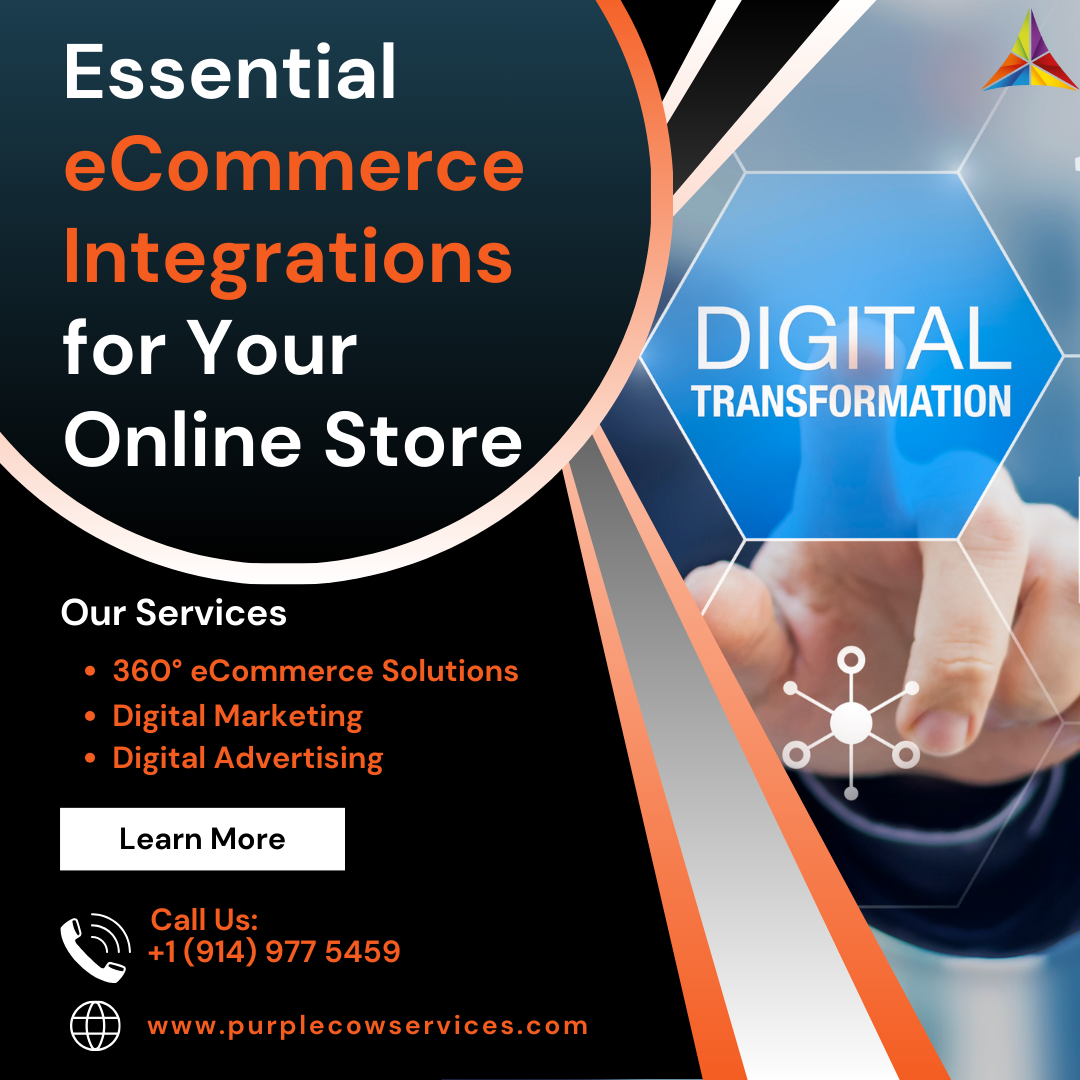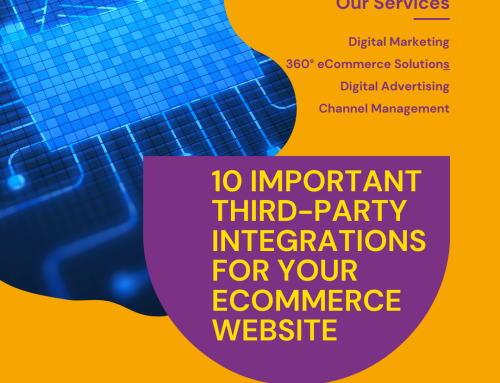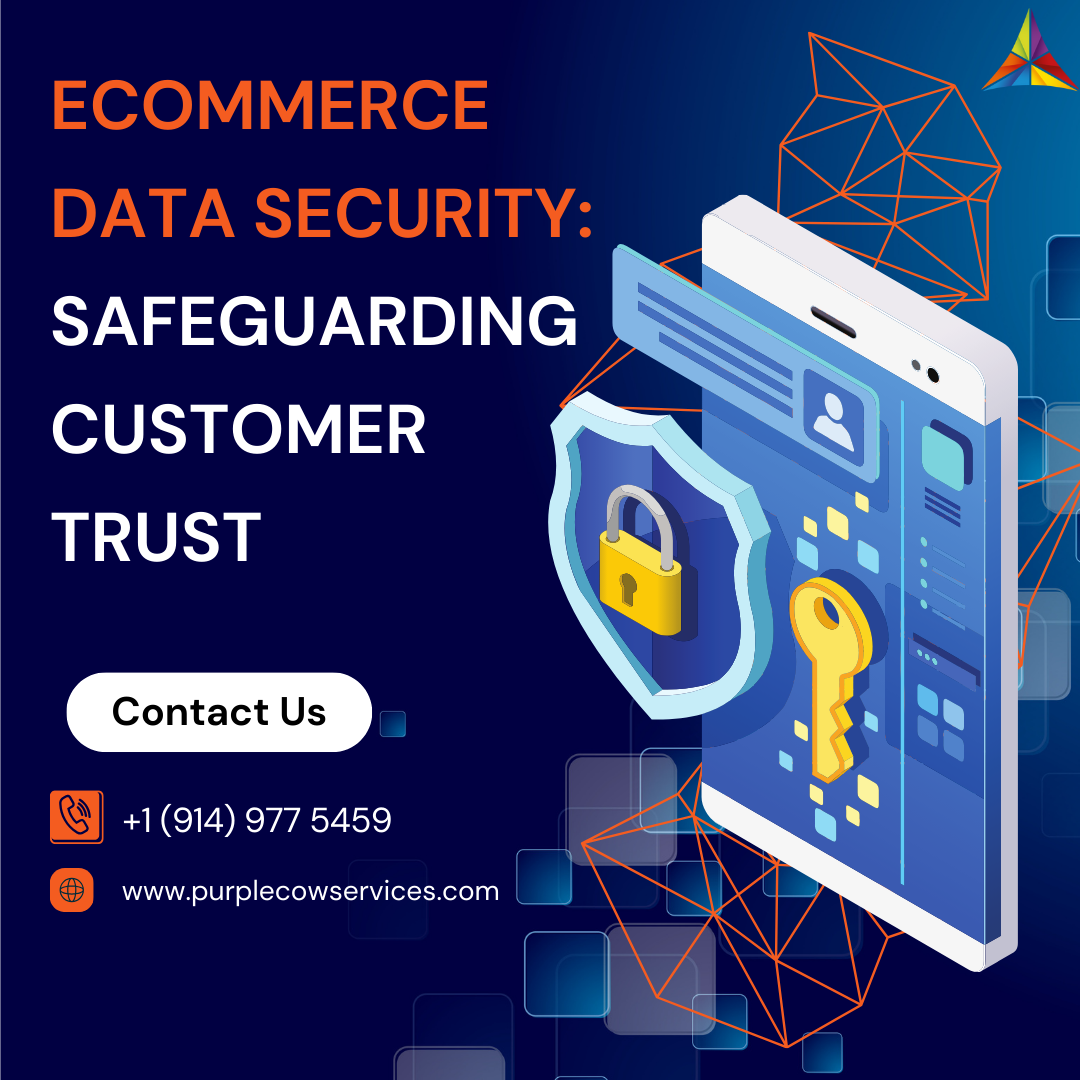In the fast-paced world of eCommerce, the right integrations can be the difference between stagnation and success.
Share This Story, Choose Your Platform!
This comprehensive guide explores essential third-party eCommerce integrations that can elevate your online store, streamline operations, and enhance customer experiences.
The Power of eCommerce Integrations
In today’s eCommerce landscape, the power of integrations cannot be overstated. Integrations act as bridges connecting your eCommerce platform with external applications and services, expanding the functionality and capabilities of your online store. They enable seamless data exchange, automation of tasks, and the enrichment of customer experiences. By integrating your eCommerce platform with third-party solutions, you can unlock a world of possibilities, empowering your business to stay competitive and thrive in the digital marketplace.
Furthermore, integrations eliminate the need for manual data entry and reduce the risk of errors. They enhance the efficiency of your operations, allowing you to focus on strategic tasks while automating routine processes. Whether it’s managing inventory, processing payments, or analyzing customer behavior, eCommerce integrations provide the tools to streamline your workflows and optimize your online store’s performance.
Payment Gateways
Efficient payment processing is paramount in eCommerce. Integrating your online store with reliable payment gateways such as PayPal, Stripe, or Square offers several advantages. First and foremost, it ensures secure and seamless transactions, instilling trust in your customers. When shoppers have confidence in your payment process, they are more likely to complete their purchases, reducing cart abandonment rates.
Additionally, payment gateway integrations allow you to expand your payment options, accommodating diverse customer preferences. Whether customers prefer credit cards, digital wallets, or alternative payment methods, integrating the right payment gateways ensures you can cater to their needs. Moreover, these integrations facilitate real-time payment processing, reducing the risk of delayed payments and ensuring a smooth checkout experience. Ultimately, payment gateway integrations are foundational for any eCommerce store, enhancing both security and convenience for you and your customers.
Shipping and Logistics
Shipping and logistics integrations play a pivotal role in the post-purchase journey of your customers. Platforms like ShipStation and Shippo simplify order fulfillment processes by providing a centralized hub for managing shipping labels, carrier options, and tracking information. These integrations streamline shipping tasks, enabling you to efficiently process and ship orders, resulting in quicker delivery times and higher customer satisfaction.
Moreover, they offer rate comparison features, helping you select the most cost-effective shipping options for various destinations. The ability to generate shipping labels and provide real-time tracking updates to customers enhances transparency and trust. In the competitive world of eCommerce, efficient shipping and logistics management can be a key differentiator, making these integrations indispensable.
Inventory Management
Effective inventory management is the backbone of a successful eCommerce operation. Integrations with inventory management systems like TradeGecko and DEAR Inventory bring automation and precision to the management of your product stock. These integrations enable real-time tracking of inventory levels, automatically updating product availability as items are sold or restocked.
By streamlining inventory control, you can prevent issues like overselling, stockouts, or order cancellations due to unavailable products. Inventory management integrations also offer features such as demand forecasting and reorder point alerts, helping you optimize stock levels and reduce carrying costs. With these integrations in place, you’ll be well-equipped to manage your inventory efficiently and provide a seamless shopping experience to your customers.
Customer Relationship Management (CRM)
A robust CRM integration, such as Salesforce or HubSpot, serves as the central hub for managing customer data and interactions. It empowers your business to build and nurture meaningful relationships with your customers. With a CRM in place, you can track customer interactions, manage leads, and segment your audience for more personalized marketing campaigns.
Moreover, CRM integrations enable your team to provide exceptional customer support. When a customer contacts your support team, agents can access their complete history and preferences, ensuring a personalized and efficient resolution to inquiries. By centralizing customer data, CRM integrations enhance your ability to engage, retain, and upsell to your existing customer base.
Marketing Automation
Marketing automation platforms like Mailchimp, Klaviyo, or HubSpot Marketing Hub are game-changers for eCommerce businesses. These integrations empower you to automate email marketing campaigns, from welcome emails to cart abandonment reminders. By segmenting your audience based on behavior and preferences, you can deliver highly targeted and relevant messages, significantly boosting conversion rates.
Furthermore, marketing automation integrations provide valuable insights through analytics. You can track email open rates, click-through rates, and conversion rates, allowing you to refine your marketing strategies and optimize campaigns for better results. Ultimately, these integrations save you time, enhance customer engagement, and contribute to revenue growth by converting leads into loyal customers.
Analytics and Reporting
Data is the lifeblood of eCommerce, and analytics integrations like Google Analytics or Adobe Analytics offer a deep dive into your website’s performance. These tools provide a wealth of information, including website traffic, user behavior, conversion rates, and more. With such insights at your disposal, you can make informed decisions and fine-tune your eCommerce strategy for success.
Integrating analytics tools with your eCommerce platform allows for real-time tracking of key performance indicators (KPIs). You can identify areas that need improvement, optimize your marketing efforts, and measure the impact of website changes. Ultimately, analytics and reporting integrations empower data-driven decision-making, helping you continually enhance your online store’s performance.
Social Media Management
Maintaining a strong presence on social media is crucial for eCommerce success. Integrations with social media management tools like Hootsuite or Buffer simplify the process of planning, scheduling, and analyzing social media posts. These integrations enable you to manage multiple social accounts from a single dashboard, saving you time and ensuring consistent brand messaging across platforms.
Additionally, social media management integrations offer robust analytics features. You can track engagement metrics, audience growth, and the performance of individual posts. Armed with this data, you can refine your social media strategy, identify trends, and engage with your audience more effectively. In the competitive world of eCommerce, a well-executed social media strategy can drive brand awareness, customer engagement, and sales growth.
Content Management Systems (CMS)
In the world of eCommerce, content is not just king; it’s the foundation of a compelling customer experience. Integrating your eCommerce platform with a content management system (CMS) like WordPress or Drupal empowers you to efficiently create, manage, and update product content, blog posts, and other website content.
A CMS integration enables your team to publish fresh, engaging content that resonates with your target audience. Whether you’re launching a new product, sharing industry insights, or running a content marketing campaign, a CMS integration simplifies content creation and ensures seamless integration with your eCommerce site. In addition to enhancing the customer experience, regularly updated content can boost search engine rankings and drive organic traffic to your online store.
Conclusion
The eCommerce landscape is dynamic and competitive, and the right integrations can make all the difference. From payment gateways and shipping solutions to marketing automation and content management, third-party eCommerce integrations have the potential to revolutionize your online store’s operations and customer experiences. By strategically selecting and implementing the right integrations for your business, you can unlock new capabilities, streamline workflows, and stay ahead in the ever-evolving world of eCommerce. Embrace the power of integration and watch your eCommerce store thrive.
Unlock the full potential of your eCommerce business with Purple Cow’s third-party integrations. Our expert team tailors solutions to seamlessly connect your online store with essential third-party applications. From payment gateways to marketing automation, we enhance your operations, streamline processes, and elevate customer experiences. Stay competitive and agile in the eCommerce arena with Purple Cow‘s integration expertise.
Share This Story, Choose Your Platform!
In This Blog:

















